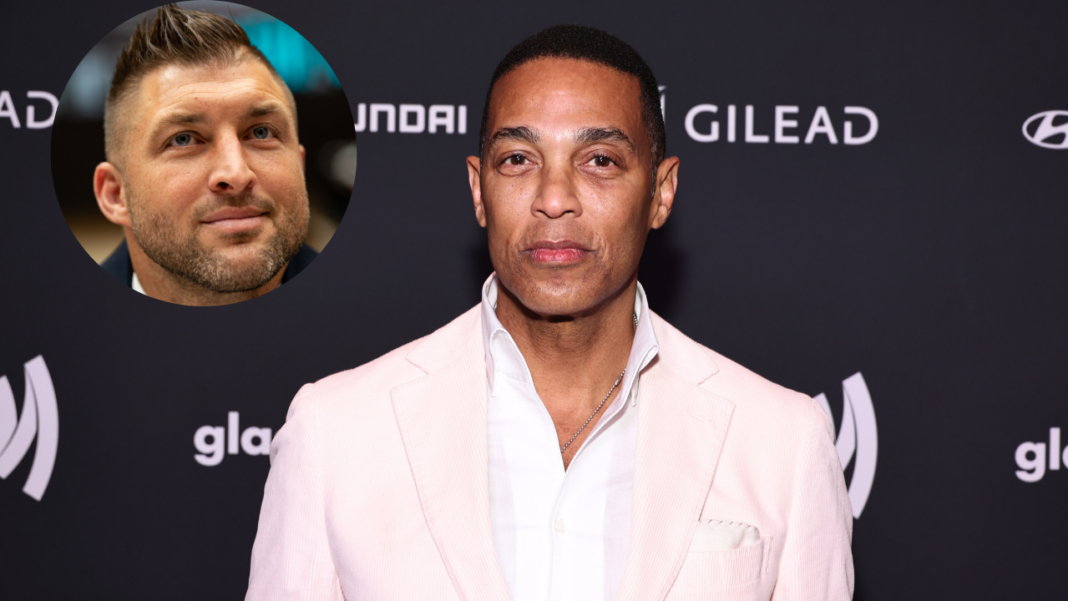Tim Tebow: An Icon of Advocacy and the Unseen Battle Against Child Abuse
Tim Tebow, a name synonymous with excellence in college football, is also recognized for his deep commitment to faith and philanthropy. Throughout his career, Tebow has not only excelled on the field but has also used his platform to champion causes close to his heart. One of his most significant endeavors is the Tim Tebow Foundation, which works tirelessly to combat human trafficking, support orphans, and provide medical care for children globally.
A Powerful Message
Recently, a segment of a Tebow interview with Shawn Ryan has gained traction, particularly for its poignant discussion about the protection of children. During this interview, Tebow made some striking statements about the demographic most commonly responsible for harming children. He boldly asserted, “The number one offender type is biological fathers… it is being done by middle-aged Caucasian men. Many, over half of them are college graduates; it’s time we call them out.”
This declaration, both startling and urgent, emphasizes the need for society to confront uncomfortable truths about child abuse. Tebow’s words challenge the narrative that victims and abusers fit neatly into preconceived categories, pushing for a broader, more honest understanding of the issue.
Emotional Reaction from Don Lemon
The impact of Tebow’s message was palpable, especially in the reaction it garnered from journalist Don Lemon. Upon watching the interview, Lemon found himself emotional as he reflected on Tebow’s call to action. In a heartfelt Instagram video, he expressed his gratitude, declaring, “Thank you, Tim Tebow. Tim Tebow is right.” His emotional response reveals the profound effect such discussions can have, particularly for those who have experienced trauma.
Lemon’s public acknowledgment of Tebow’s message also delves into the politicization of child abuse. In the wake of ongoing discussions regarding figures like Jeffrey Epstein, Lemon criticized conservative media for failing to prioritize the truth surrounding such abuses. “Why isn’t MAGA, why isn’t conservative media exploiting this?” he questioned, challenging the accountability of those in power.
The Double Standard in Media
Lemon’s reflections also reveal a broader issue of media bias and societal indifference towards child abuse. He pointed out that many individuals may dismiss harsh realities because they don’t align with their ideological stances. “Because someone like me, a journalist, points it out … it can’t be right? It can’t be accurate? That I must have an agenda,” he stated, highlighting the troubling tendency to label dissenting voices rather than engage in meaningful dialogue.
In his commentary, Lemon illuminated another layer to the issue, emphasizing that the demographic Tebow identified is often overlooked in discussions about abuse. “It’s conservative people, men in the MAGA orbit… men who look normal, men who look stable,” he articulated. By drawing attention to the often-hidden faces of abusers, Lemon and Tebow alike challenge stereotypes and encourage a more nuanced understanding of the problem.
A Personal Battle
Lemon’s own history amplifies his voice on this issue. In his memoir, “Transparent,” he candidly discusses the sexual abuse he suffered as a child. This personal background shapes his perspective and underscores the urgency with which he approaches conversations about child protection. His frustration propels him to hold powerful figures accountable, while also demanding that they act on behalf of the most vulnerable.
As Lemon continues to speak out, he underscores a vital truth: advocacy does not discriminate based on race, socioeconomic status, or political affiliation; it is a collective moral responsibility. His unwavering stance against complacency resonates powerfully in a world where the voiceless often remain unheard.
Tackling the Stigma
Both Tebow and Lemon contribute to an essential conversation that goes beyond mere statistics; they illuminate the human experience behind these numbers. By exposing the prevalence of abuse and calling upon individuals to take a stand, they advocate for greater awareness and action. The focus is not only on identifying perpetrators but also on galvanizing communities to unite against these atrocities.
Their advocacy highlights the need for society to break down barriers that prevent frank discussions about abuse. Stereotypes must be dismantled, and accountability must extend to all individuals—regardless of their background.
Commitment to Change
As Tebow remains an ardent advocate for children and Lemon continues to challenge societal norms, the combined force of their messages calls for a cultural shift. It invites a reevaluation of how we discuss, address, and dismantle the issues of child abuse.
Through shared narratives and public discourse, they seek to inspire action, encouraging everyone to be vigilant protectors of children. As this conversation unfolds, it is essential to listen, learn, and empower those working to heal, protect, and defend the innocent.



